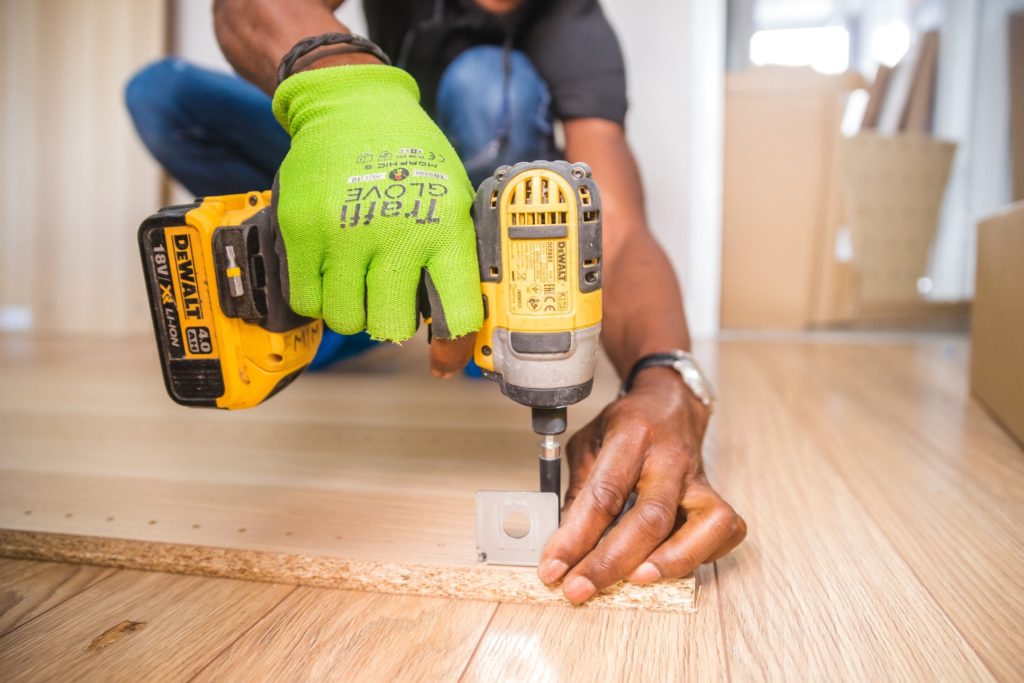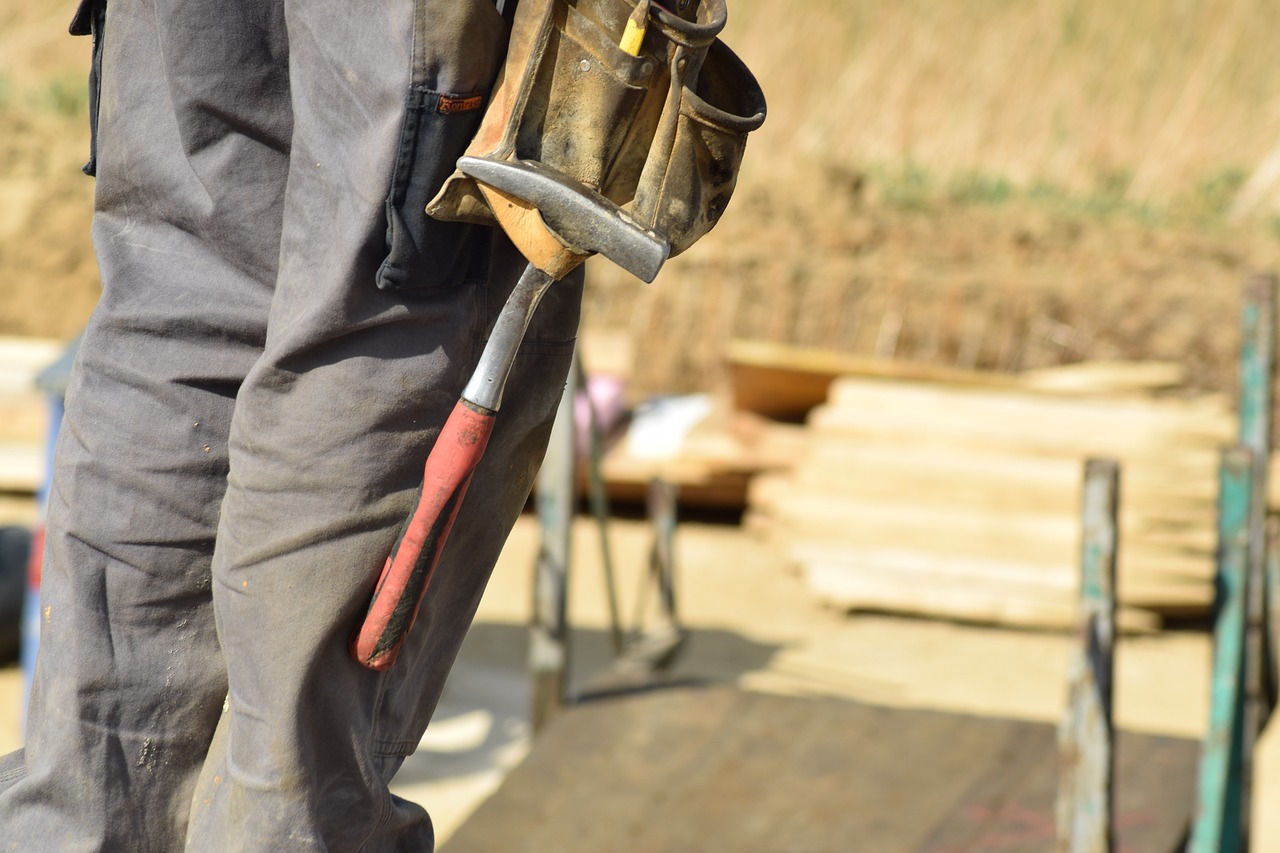The Skilled Labor Shortage
Signs of Contractor Fraud & How to Avoid It

General home contractors can help transform a space. They make challenging projects look easy, diagnose and make necessary repairs, and help homeowners’ home improvement dreams come true. While some contractors perform their jobs well, not every contractor experience is a pleasant one.
Mohamed Asif saw this firsthand and shared his story with NBC Boston. According to Asif, he had written multiple checks to a contractor to tear down and rebuild his home. The trouble came when eventually the contractor abandoned the job and filed for bankruptcy. Asif was left with an unfinished home riddled with problems. He also had flushed thousands of dollars down the toilet.1 Unfortunately, this is not an isolated incident. Other people like Asif have had similar experiences around the country.
Contractor Fraud is on the Rise
General contractor fraud is an all-too-common occurrence that can keep homeowners from making updates or repairs. In more recent years, the number of home improvement scams has grown significantly as well.
According to the Inspection Support Network, the number of home improvement and repair scams reported to the Federal Trade Commission typically did not exceed 3,000 between 2015 and 2017.2 Unfortunately, this has changed. Between 2018 and 2020, the number of reports doubled each year and hit a record-breaking 30,337 reports in 2020 during the pandemic.2 While 2020 was a big outlier, reports are still much more frequent than they used to be. In 2022, the Federal Trade Commission received 16,486 home improvement reports. This number is more than five times higher than numbers before 2018.2
These contractor scams can be a nightmare for any homeowner. By one estimate, home improvement scams in 2021 and 2022 alone have resulted in $82 million lost in the United States.2 For many homeowners, the loss of any money on these projects can be devastating. Especially with the economy now teetering the way it is, some homeowners do not have money to spare.
If you are thinking about starting some home improvement projects, be wary. Especially if you looking to sell your home, the last thing you want is an unfinished project or poor-quality work when potential buyers come to tour your home.
Examples of Contractor Fraud
Everyone has heard the horror stories of shoddy contractor work. Work is left half done or homeowners are scammed out of thousands of dollars. It is a sad reality in the business and with such a rise in scams in the last few years, it is important to know the types of contractor fraud and what to look for before you find yourself in a bad situation.
Misleading Proposals or Contracts– Some contractors will say one thing when they make a verbal proposal, but their contract will say something very different. Before you sign on the dotted line, make sure to read the fine print.
Upfront Payment– One common example of contractor fraud is when general contractors require all the payments to be upfront. Especially if they ask for the payments to be in all cash, be wary. In these instances of home improvement fraud, the contractor takes your money and runs.
Lowball Quotes– If the price of the work seems too good to be true, it probably is. A fraudulent contractor will give a low quote to get homeowners on board. Once the work starts, extra costs and hidden fees will appear. In the end, the homeowner will pay a lot more than the initial quote.
False Invoices- In some cases, a general contractor will create false invoices. These invoices may include work that wasn’t actually done or inflate costs so the contractor can steal from you without your knowledge.
Numerous Problems Along the Way- Some contractors will scam people out of money by pointing out more and more problems that need fixing before the initial project can be completed. This type of home repair fraud can lead to an endless array of work that significantly increases project costs.
Material Substitution– Another common construction scam is when general contractors will substitute high-end materials for low-grade ones without changing the price. Some general contractors will even have deals with certain suppliers to reduce the cost for them but often at the expense of quality. As a result, the homeowner will pay more than they should, and the contractor can pocket the difference.
Using “Leftover” Materials- Some general contractors will also try to draw in homeowners by offering them a great deal since they have materials left over from a previous job. This type of home improvement scam sounds great at first but is often just a ploy to get more work and can lead to more headaches down the road.
Not Pulling Permits- Some projects require permits, and it is the contractor’s responsibility to pull them. Unfortunately, not every contractor will take this step. In the end, the homeowner could end up paying more to undo the illegal work.
How to Avoid Contractor Fraud
No homeowner wants to be a victim of general contractor fraud or home repair scams. Because there are so many home improvement scams, it is important to know how to keep them from happening to you.
Perhaps, the most obvious way to avoid contractor scams is with DIY projects. While this approach lets you steer clear of hiring a contractor altogether, it comes with its own set of problems. DIY projects are not only time consuming, but also they may require buying a lot of tools and the end result may look subpar.
Another way to avoid contractor fraud is to do your research before hiring someone. Look online for reviews or complaints. A contractor without any reviews or a lot of bad ones is probably not a good choice. Instead, look for high ratings or ask people you trust for recommendations. Unfortunately, even with research, you could still end up scammed by a contractor.
The final option is to find someone that will screen the contractors for you. At Curbio, we can help. We have experienced and vetted contractors that focus on projects with a high return to boost the value of a home before it is listed.
Consequently, homeowners do not have to worry about price changes. Homeowners can get more work done that they otherwise might have written off. Contact us today or get started with a free home improvement estimate.
Frequently Asked Questions
If you have been scammed by a contractor, you should report it. File a report with local law enforcement to begin. You may also want to file a complaint online like with the Better Business Bureau to keep other people from falling for the same scam.
If you are a victim of home improvement fraud, you are not alone. You can file a report with your local law enforcement. Depending on the situation, you may also want to hire a lawyer or pursue your legal options. A lawyer may be able to help you get your money back from the contractor.
Whether or not contractor fraud is covered by homeowners insurance will depend on your insurance policy as well as the type of fraud. Some policies will cover stolen money but only to a certain limit. If your contractor causes damage to your home, you may also be covered. On the other hand, poor-quality work is typically not covered. Consult your insurance company about your policy to learn more about your specific situation.
Sources:
- Boston NBC (2023). ‘What Happened to the Money?’ After Customers Paid Large Deposits for Home Projects, Contractor Files for Bankruptcy
- Inspection Support Network (2022). Home Improvement Scams Trends Report 2022


